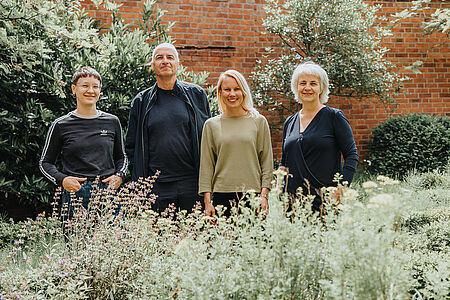S06: “Bringing Gender into Science – and Back!” Historical and Ethnographic Perspectives on Sex Development
Calls for the consideration of gender diversity and the establishment of gender-informed approaches in biology and medicine are based on the insight that biological analyses of gender are built upon complex processes of knowledge generation and knowledge validation. However, it can still be observed today that binary-structured concepts continue to dominate in these fields of research and practice.
The aim of this project is to reconstruct the binary conditions and concepts of sex and gender in biomedical knowledge through a historical analysis and ethnographic study of laboratory research.
First: We will analyze the history of endocrinological research of sex development in the German speaking area from 1950 to 1990. In the reconstruction of theoretical approaches and endocrinological experimental systems for prenatal sex differentiation by testosterone, such as those associated with Alfred Jost's microsurgical experiments, the established assumptions about sex development that still characterize bioscientific research today are retraced. We are interested here in how the processes of formation of this research field in West Germany and the GDR took place.
Second: We will investigate the production of knowledge about sexual development in a molecular laboratory. In an ongoing ethnographic process of observation in a concrete research context of Life Sciences - science in action - we ask how the process of knowledge production is guided by cultural assumptions as well as complex technological conditions.
Throughout the project we will collaborate with colleagues in endocrinology and molecular biology (project M02): Based on a continued exchange of historical analyses and ethnographic observations with the Life Sciences project team, this study will provide new perspectives on the complex interrelationships between research, science and society.
The aim of the project is to strengthen reflexive perspectives in a concrete research context in an ongoing dialog between molecular biology, history of science and ethnography and to establish sustainable cooperation between the Humanities and the Life Sciences.







